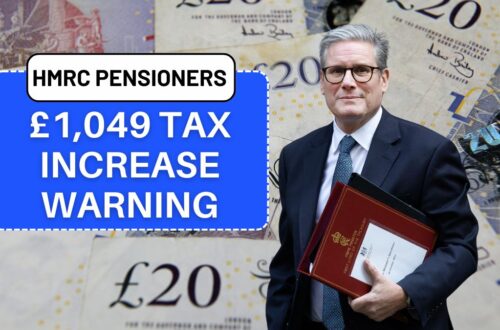Around 13 million people across the United Kingdom have now reached the official State Pension age. For most, the State Pension is a major part of their income after retirement.
It provides a regular amount of money every few weeks, depending on a person’s National Insurance record and the type of pension they qualify for.
The Department for Work and Pensions (DWP) currently offers two main types of State Pension – the New State Pension and the Basic State Pension. Let’s take a look at how they work and what other benefits are available for older citizens.
State Pension Amounts in the UK
Here is a simple breakdown of how much pensioners can receive:
| Pension Type | Number of Pensioners | Maximum Payment Amount |
|---|---|---|
| New State Pension | 4.1 million | Up to £921 every four weeks |
| Basic State Pension | 8.8 million | Up to £705.80 per pay period |
The total amount depends on how many qualifying years a person has contributed to National Insurance. People with fewer years of contribution may receive less than the maximum.
How to Qualify for State Pension
To qualify for any Pension payment, a person must have at least 10 qualifying years of National Insurance contributions or credits. To receive the full New State Pension, around 35 qualifying years are needed. Some individuals who were “contracted out” in the past may have slightly different rules.
The State Pension is not means-tested, meaning it does not depend on how much income or savings you have. It is a taxable income, and people can choose to defer it if they continue working beyond the retirement age.
Other Support for People of Pension Age
Apart from the main pension, several extra supports are available for people over the State Pension age. These additional payments and discounts can help ease the cost of living, especially during winter.
1. Pension Credit
Pension Credit is one of the most valuable benefits for older people with low income. It adds extra money each week to help with daily expenses. On average, this support is worth around £4,300 per year.
It also acts as a “gateway” to other benefits like Council Tax discounts, housing support, free NHS dental care, and free TV licences for people over 75.
2. Council Tax Reduction
If you own or rent your home and are living on a low income, you may qualify for help with Council Tax. The local council checks your situation and decides how much discount you can get.
3. Cold Weather and Winter Support
When the temperature drops, eligible pensioners can receive Cold Weather Payments or a Winter Fuel Payment to help pay for heating bills. These payments are automatic if you meet the eligibility conditions.
4. War Widow and Widower Pensions
If your partner was injured or died while serving in the UK Armed Forces, you may be entitled to a War Widow’s or Widower’s Pension. This provides ongoing financial help and medical cost coverage.
5. Disability and Care Benefits
Older people who need regular care or have disabilities can claim Attendance Allowance, even if they did not previously claim Disability Living Allowance (DLA) or Personal Independence Payment (PIP). This benefit helps cover the extra costs of long-term care.
6. Free Passport Scheme
British nationals born on or before 2 September 1929 may apply for a free UK passport, removing the need to pay renewal fees.
Reaching the State Pension age opens the door to more than just the basic pension payment. With options like Pension Credit, Council Tax help, disability benefits, and winter support, the UK’s DWP ensures that older citizens have a safety net.
Make sure you check what you are eligible for so you can claim every bit of help available. Staying informed and applying on time can make retirement much easier and more secure.
FAQs
How much is the maximum New State Pension?
The maximum New State Pension is around £921 every four weeks, depending on your National Insurance record.
What is Pension Credit used for?
Pension Credit helps low-income pensioners by adding extra funds and unlocking other benefits like Council Tax and NHS discounts.
Can I still work and receive a State Pension?
Yes. You can continue working while claiming your State Pension. It will be treated as taxable income.









